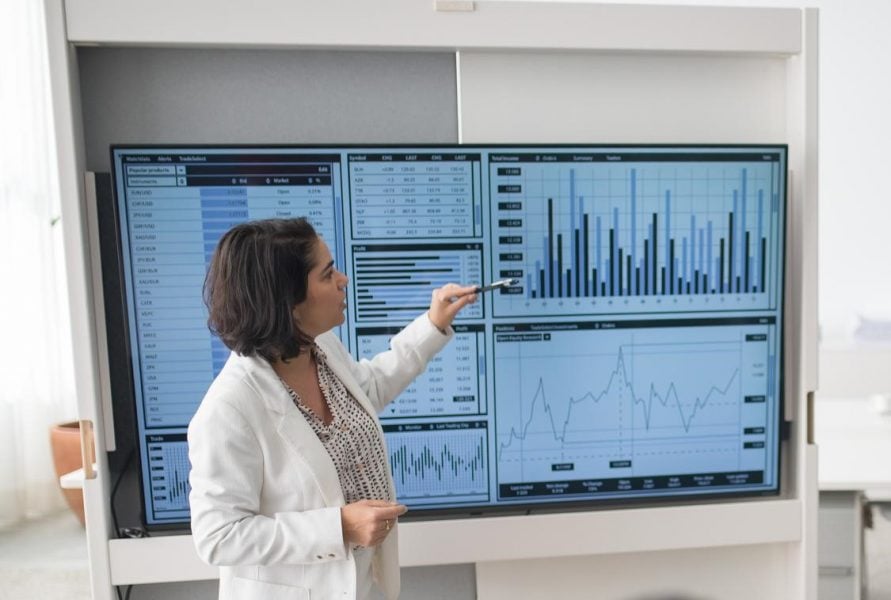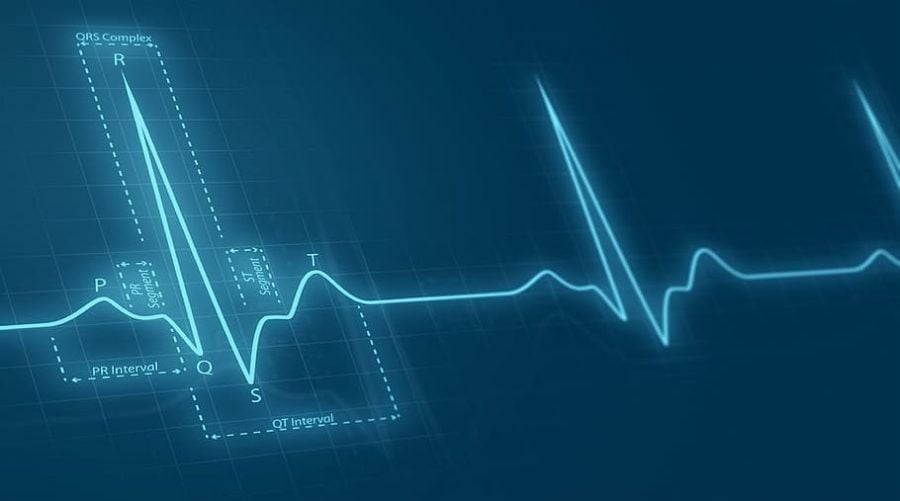On June 2, 2025, students can once again enroll in Linear Algebra: A Bridge Course for Prospective Applied Statistics Students.
Bridge courses, which are short, intensive, preparatory courses, help learners acquire the necessary knowledge and skills to enter advanced study. Advanced study might mean an undergraduate program, graduate degree, or graduate certificate. Often, these courses are aimed at applicants who have been provisionally accepted into a program.
This noncredit bridge course is an effective, low-cost option for those needing the linear algebra requirement to enroll in MTU’s Online Master of Science in Applied Statistics program. In particular, it will help students get ready for a Fall 2025 or Spring 2026 program start.
The practical curriculum covers the fundamentals of linear algebra as they pertain to applied statistics. Some of the topics include, but are not limited to, the following:
- systems of equations
- vectors
- matrices
- orthogonality
- subspaces
- the eigenvalue problem
The asynchronous 10-week format will help learners quickly master the fundamentals of linear algebra. The course consists of helpful instructor-led videos, extensive auto-graded exercises in Pearson’s MyLab Math learning environment, periodic review assignments, and regular instructor feedback.
Teresa Woods, associate teaching professor and academic coordinator in the Department of Mathematical Science, is helming this course. Woods is an engaging instructor with not only a passion for math and linear algebra, but also a wealth of practical experience: she holds both an MS in Mathematical Sciences and a MS in Education. With her guidance, students are assured a robust, interactive learning experience that will make even the trickiest concepts stick.
Why Linear Algebra? And What Does It Have to Do With Statistics?
Linear algebra, a specialized branch of algebra, focuses on the study of vectors, vector spaces (or linear spaces), matrices, eigenvalues and eigenvectors, linear transformations, and systems of linear equations.
This foundational area of mathematics has applications in several fields, such as physics, computer science, engineering, economics, and applied statistics.
And, of course, applied statistics.

Applied statistics is the implementation of statistical methods, techniques, and theories to real-world problems and situations in healthcare, science, engineering, business, finance, medicine, social sciences, and more. This discipline involves collecting, summarizing, analyzing, interpreting, and presenting data to make informed decisions, analyze scenarios, solve problems, and answer questions.
Applied statisticians also use advanced techniques, such as machine learning algorithms, to extract insights and patterns from large datasets. That is, they work in a wide range of places: research institutions, the government, business and finance, universities, healthcare systems, and more.
These experts regularly apply linear algebra, primarily because of its ability to handle large datasets and complex calculations efficiently.
What Are Some Real-World Examples of Linear Algebra and Applied Statistics?
Here are a few scenarios in which linear algebra and applied statistics work together:
- A statistician working for Netflix might collect and then simplify data on user ratings for various movies. Next, they would represent that data as a matrix and train the model. By uncovering patterns in the ratings, they could then use the model to generate an effective recommendation system. This approach is also widely used in e-commerce sites and music streaming services.
- Furthermore, a real estate agent might use linear regression, a common method for determining outcomes, to predict how housing prices will increase or decrease in the next year. This information would help them price houses in their portfolio, estimate their commission, and so on.
- Healthcare professionals regularly use linear algebra and applied statistics. Principal Component Analysis (PCA) helps reduce the complexity of a large dataset by identifying key patterns and relationships between variables. Through this approach, health officials can then predict and intervene on disease outbreaks more effectively.
- And, of course, linear algebra and applied statistics work together in several processes involving elections. These include voter segmentation and targeting, predictive modeling, analyzing voting patterns, polling analysis, and redistricting and gerrymandering.
Learn More About This Bridge Course and The Online MS in Applied Statistics.
Need advice on whether this course is right for you? If so, please contact Teresa Woods at tmthomps@mtu.edu.
This blog, though, offered just a few examples of the need for data professionals with applied statistics expertise. MTU’s online MSAS program can help you fill that talent gap while earning your degree more quickly.
That is, our online MSAS program consists of ten 7-week compact courses, which were carefully designed to be online and to meet quality standards. You can take courses in both Track A and Track B of most semesters, completing your degree in fewer semesters.
If you’d like an overview of the online MSAS program, watch this recording. But, if you have specific questions, contact program director Dr. Kui Zhang or program assistant Shanna Reynolds.








